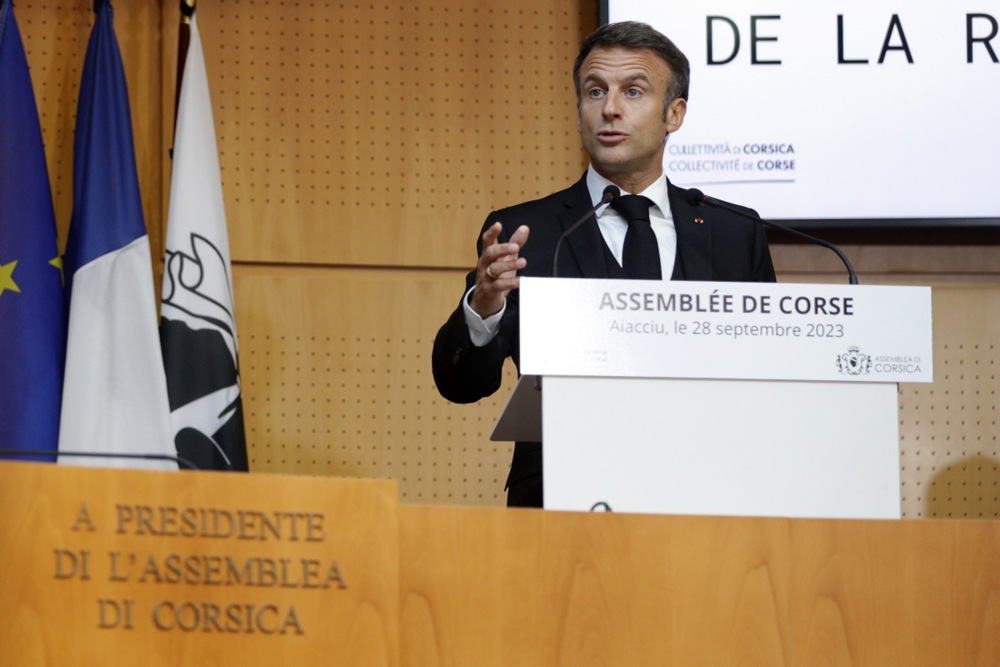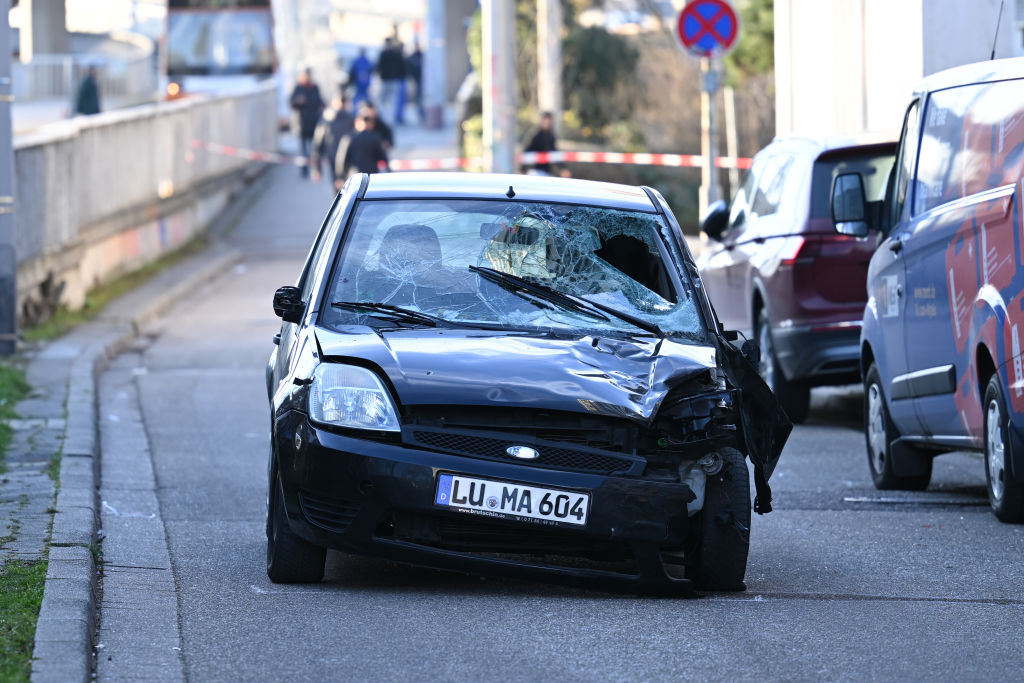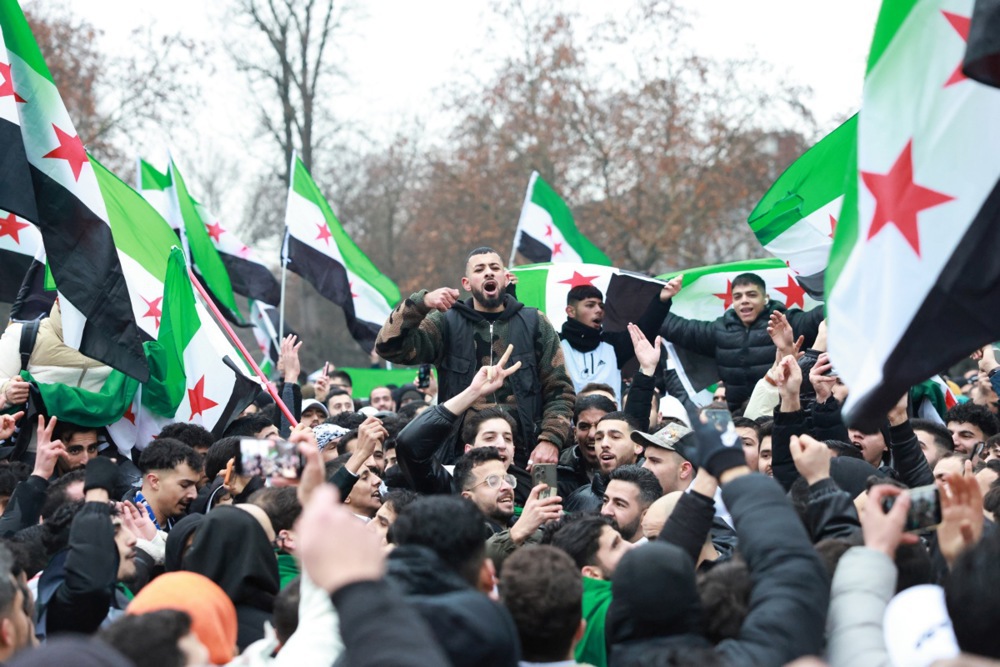Austria has targeted Croats living there who attended a mega concert by the nationalist Croatian band Thompson in their home country.
While the event was among the largest ticketed concerts in Europe, drawing half a million people, the Austrian State took offence at reported displays of Croatian Revolutionary Movement (Ustaša) symbols and chants.
They were said to include “Za dom spremni!” (For homeland – ready!) linked to the Nazi-allied and ultra-nationalist Ustaša, a Croatian fascist movement that nominally ruled the Independent State of Croatia during the Second World War.
“Za dom spremni!” is often chanted at Thompson concerts and is referenced in at least one song.
Austrian authorities, enforcing strict anti-fascist laws, are now investigating more than 18,000 Croatian attendees living in Austria, issuing fines and, according to some, even threatening deportation.
The government said it would analyse posts on social media to see if people shared anything regarding their attendance.
Croatian outlets such as Tportal, Novosti, and Dnevno reported on August 19 that fines had already been issued to some attendees.
People displaying banned symbols can be punished with fines of up to €4,000 and for repeated offences up to €10,000.
Austrian laws prohibit the public use of Nazi symbols and gestures unless for specific purposes regarding the arts or education. The same is true for Islamist and terrorist symbols. No specific legislation targets Communist symbols.
Austrian Freedom Party (FPÖ) MEP Petra Steger said it was wrong for the Austrian government to go after these Croatians.
“While the Republic of Austria spies on blameless concertgoers abroad, security on Viennese streets is eroding more and more. This is not only a wrong prioritisation, it is above all a completely inadmissible invasion of the privacy of citizens,” Steger told German news outlet Junge Freiheit.
The band’s singer, Marko Perković Thompson, regularly starts his concerts with the Ustaše salute. He served as a soldier during the 1991 to 1995 Croatian war of independence.
Before the concert, linked to the 1100th anniversary of the Croatian Kingdom and marking the coronation of King Tomislav in 925, Perković Thompson told the crowd to cherish God, family and homeland and said Europe should return to its Christian roots, claiming: “For only then can you be strong.
“Tonight, through our songs, we will revisit various themes from our past, because it is from the past that we learn,” he continued.
“We must be proud of it and honor the heroes who built it.”
The LARGEST ticketed concert in HISTORY took place tonight in Zagreb, Croatia
500,000 people listened to the music of Marko Perkovic Thompson, who sings songs about faith and patriotism and who lit up the night sky with images of OUR LADY to the huge crowd pic.twitter.com/q67O62xfYZ
— Catholic Arena (@CatholicArena) July 5, 2025
Conservative commentator Matija Štahan spoke to the BBC about the use of the slogan “Za dom spremni!“, saying: “Many journalists in the West say it’s the Croatian version of ‘Heil Hitler’ – but it would be best to describe it as the Croatian version of ‘Slava Ukraini’ [the Ukrainian national salute ‘Glory to Ukraine’].
“Both rose to prominence in the context of World War Two – which was a war for many small nations who wanted their own independent states.
“Symbols change their meaning – and just like ‘Slava Ukraini’, ‘Za dom, spremni’ also means something different,” Štahan said.
“Today, it’s an anti-establishment nationalist slogan. It’s against the Croatian politically-correct post-communist political elite. Young people want to shout it as something that’s subversive.”
Despite their huge popularity in Croatia itself, there was also opposition against Thompson, especially from the progressive side of the political aisle.
Croatian Ombudsperson Tena Simonovic Einwalter condemned the behaviour of some concert-goers but also the organisers and the authorities for not denouncing the use of the slogans.
“This indicates that, over the years, and even before this concert, a sufficiently clear message has not been sent that all expressions of hatred and glorification of the darkest periods of the past are unacceptable and illegal,” Simonovic Einwalter said.
According to the Youth Initiative for Human Rights NGO, the concert represented “the most serious challenge to Croatia’s constitutional values since the late 1990s and a direct attack on the EU’s fundamental values”.
“It is clearly a fascist slogan,” the NGO’s director in Croatia, Mario Mažić said.
Croatia’s interior minister Davor Bozinovic said on August 17 that police would check individual cases of singing inappropriate songs and displaying Ustaša iconography at the concert. He added, though, that he did not believe half a million attendees could be labelled extremists, news outlet Balkan Insights reported.
In neighbouring Serbia, which suffered under Croatian ultra-nationalism and the Ustaša, President Aleksandar Vucic said that the concert represented the “biggest fascist rally since the Second World War”.
“Not even during the Second World War was there such a massive gathering that directly promoted the fascist, Ustasha ideology, as the worst form of Nazi ideology,” Vucic said after the concert.
He added that Serbia was used to the European Commission not reacting to such events while Serbia itself fell under higher scrutiny.
500 000 Croats gathered in Zagreb yesterday for a concert by the nationalist hard rock musician Thompson.
During the concert, he said he had a message not just for the Croats:
“I have a message for Europe, go back to your roots” pic.twitter.com/Zd17H0heVI
— Visegrád 24 (@visegrad24) July 6, 2025





